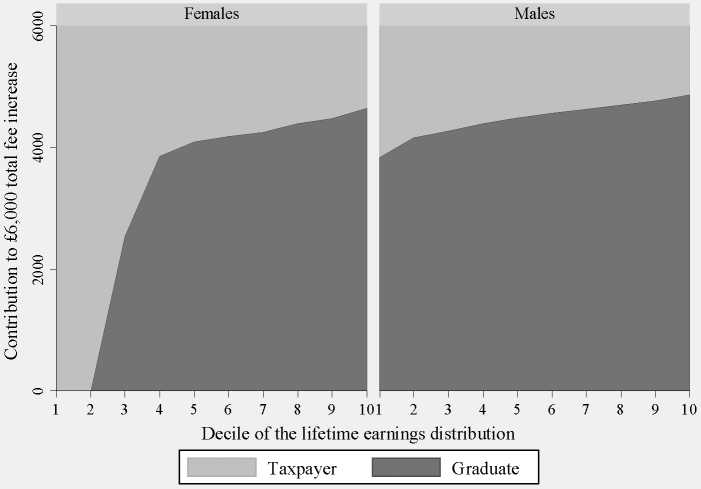lifetime earnings. Notice that the taxpayer subsidy for additional fee increases are
greater than the average subsidies calculated for the full £18,340 loan (Table 4), since
the income contingent system combined with the zero real interest rate means that
each additional £1 borrowed comes at a greater cost to government and smaller cost to
the borrower. Clearly any increase in the fee cap would boost universities’ income,
but at the same time would put considerable upward pressure on public expenditure,
unless the system of loan subsidies were reformed.
Figure . Taxpayer and graduate contributions to a rise in the fee cap from £3,000
to £5,000

Note: Figure shows median payment by decile group of lifetime earnings
distribution.
27
More intriguing information
1. The name is absent2. The name is absent
3. The name is absent
4. The name is absent
5. Female Empowerment: Impact of a Commitment Savings Product in the Philippines
6. Methods for the thematic synthesis of qualitative research in systematic reviews
7. The name is absent
8. Evidence on the Determinants of Foreign Direct Investment: The Case of Three European Regions
9. Types of Cost in Inductive Concept Learning
10. Visual Perception of Humanoid Movement